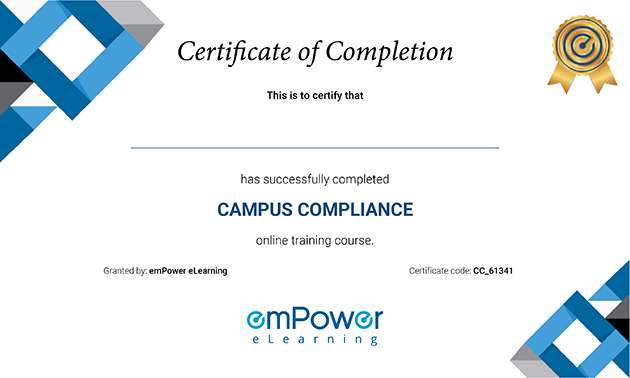Complete Alcohol Risk Reduction Online training
Navigate College Drinking Challenges: Enhance Awareness and Mitigate Risks through Alcohol Risk Reduction Online Training

Our Client

































What is Alcohol Risk Reduction Training
Excessive drinking can lead to academic setbacks, cause health problems, and create social strains. For these reasons, it’s important to educate students of the dangers of alcohol abuse.
As you go through the alcohol risk reduction online training, you’ll learn how alcohol abuse impacts your academic life and why you must avoid it.
First, we’ll look at the different ways alcohol affects student life, including the adverse effects on your GPA, physical and psychological health, and financial troubles.
Then, we’ll share the facts about alcohol abuse you need to know. This includes how alcohol works, blood alcohol concentration, effects of abuse on your brain, and the consequences of alcohol abuse on student life.
In the last section of the alcohol risk reduction online training, we’ll take you through safe and unsafe drinking habits, such as moderate and at-risk drinking, binge drinking, and equivalence of alcohol types.
By the end of the training, you’ll be prepared to tackle alcohol-related challenges, and help others navigate through this risky behavior.
Course Description
| Category | Campus Compliance |
| Course Name | Alcohol Risk Reduction Training |
| Duration | 30 mins |
| Certificate Included | Yes |
| Languages | English |
| Course Type | Interactive online training |
| Narration | Yes |
| Format | LM-light, SCORM 1.2 |
| Supported Devices | Desktop/Laptop, Tablet, Phone |
| Last Updated | June 30, 2021 |
What you’ll learn
- Why do college students drink?
- Impact of Using Alcohol on Grades
- What is alcohol, and how does it affect the human brain?
- Blood alcohol concentration
- Moderate and at-risk drinking
- Binge drinking
- How to handle an emergency
- When to avoid drinking
Curriculum
- Why Do Some College Students Use Alcohol?
- What are the Impacts of Using Alcohol?
- Alcohol and Your GPA
- What You Need to Know about Alcohol?
- How Alcohol Works?
- Blood Alcohol Concentration (BAC)
- Effects of Alcohol on the Human Brain
- Consequences of Alcohol Abuse
- Moderate and At-risk Consumption Levels
- Equivalence of Alcohol Types
- Binge Drinking
- Blackouts are NOT Normal
- How to Handle an Emergency
- Do NOT Drink IF
- NEVER Mix Drugs with Alcohol
Who Should Attend?
- College and university students
- Administrators and members of student committees
- Campus compliance teams
Why emPower
100s of customers
- 14+ Years of experience in working with small to large businesses from different industries
- 95% customer retention
Customer Experience
- 24x7 dedicated support and toll free number
- 99%+ guaranteed uptime
Extremely Cost-effective
- As low as $0.99/user/yr
- We will match or better the price of your current LMS
Effective Courses
- Each course is 20-40 min long to ensure engagement with quizzes and certificate
- SCORM 1.2 Compliant
Implementation
- No setup costs
- We deploy your customized solution in less than 48 hours
Our Achievements
Here you can review some statistics about our Education Center
Related Courses
Title IX
for Students
Campus Security
Authority
The Clery
Act
Start Your Certification Course Today
College drinking can result from stress, course load, peer pressure, and even out of curiosity. These four factors work together to create an environment that leads some students to abuse alcohol.
Let’s take a look at these four factors of alcohol abuse individually.
- Stress – Students can turn to drinking to cope with the high demands of coursework, part-time jobs, internships, and social obligations.
- Course load – Some students also turn to drink as it helps them to stay awake to study or complete assignments by their due dates.
Peer pressure – Students can also take up drinking under the influence of their classmates, friends, or acquaintances
Educate students about responsible drinking, potential risks, and legal implications. Offer support for those who struggle with alcohol use, promoting a healthy and safe environment on campus.
Promote awareness campaigns on responsible drinking, provide access to counseling services, organize alternative social events, and enforce strict policies against underage drinking and excessive alcohol consumption to minimize associated risks.
Education to prevent alcoholism involves teaching individuals about the physiological and psychological effects of alcohol, the risks of excessive consumption, coping strategies, and fostering decision-making skills to make responsible choices regarding alcohol.
- Conduct comprehensive training programs highlighting alcohol risks.
- Enforce stricter policies addressing underage drinking and alcohol abuse
- Conduct regular out-reach programs against alcohol abuse

